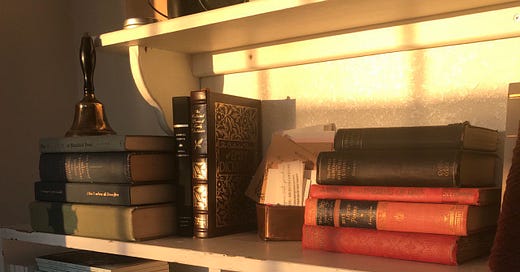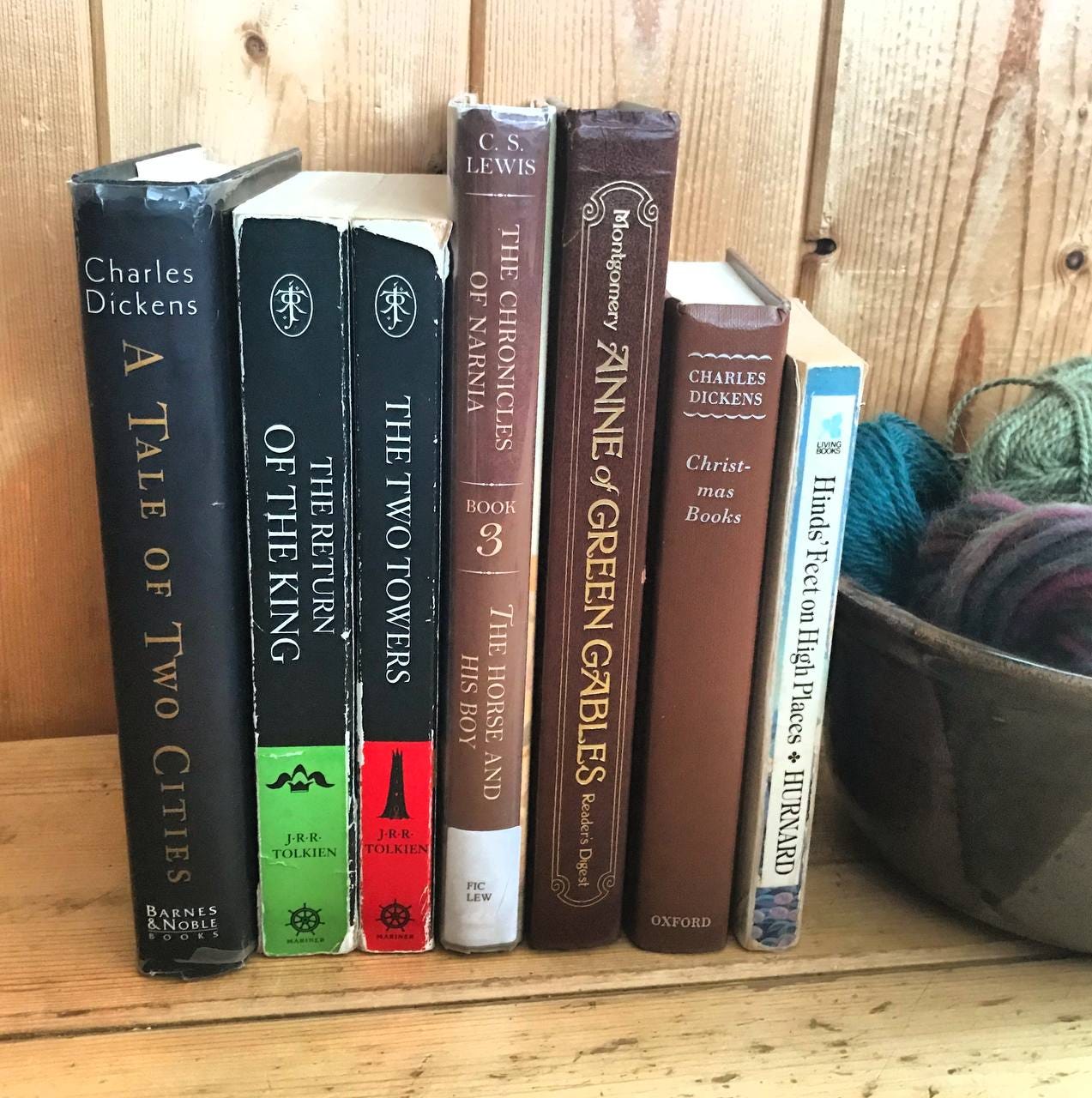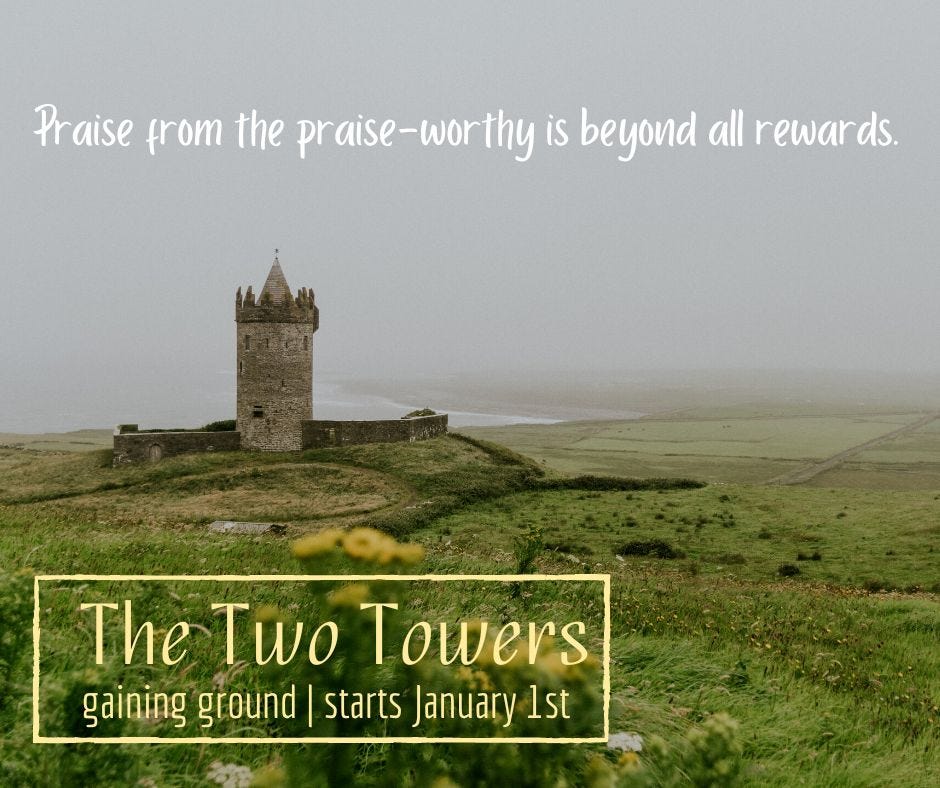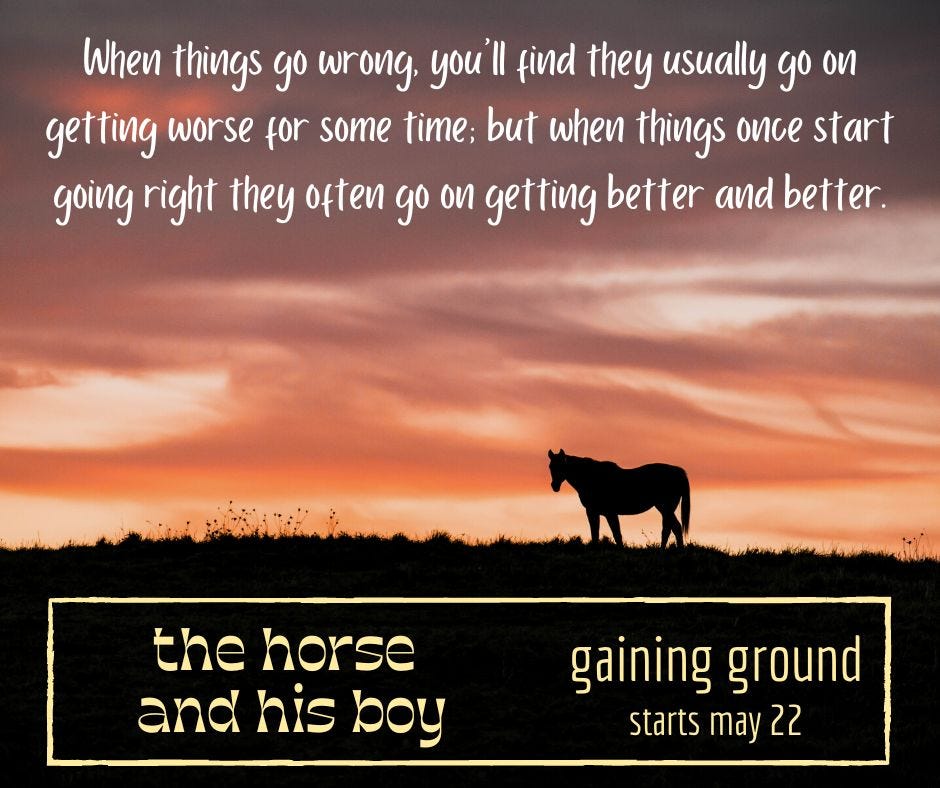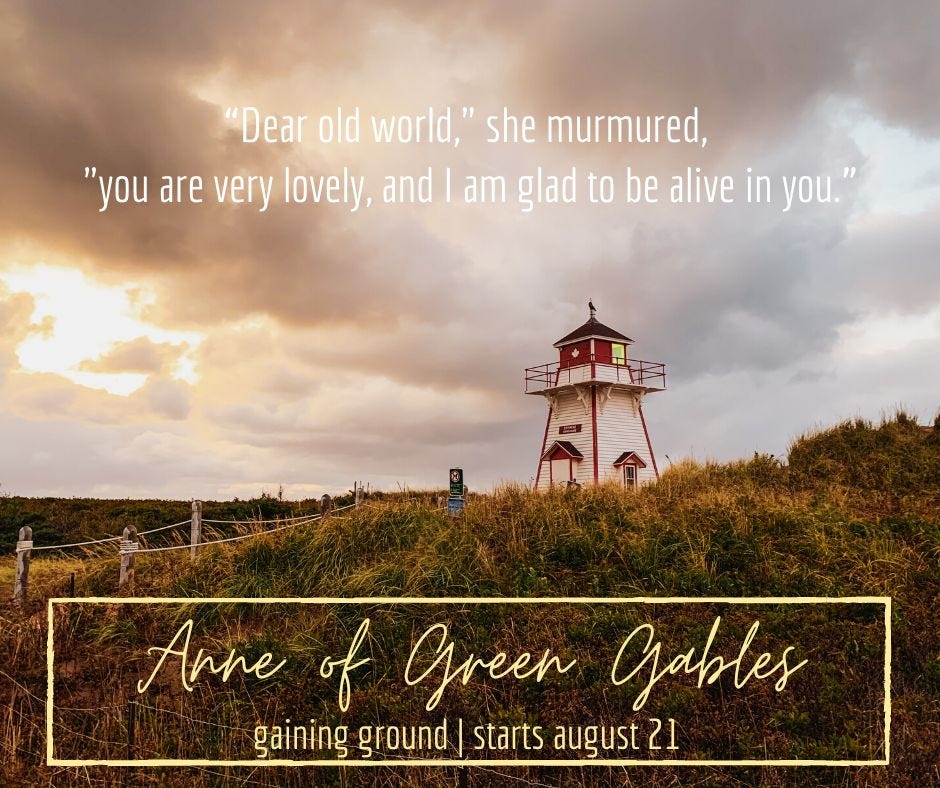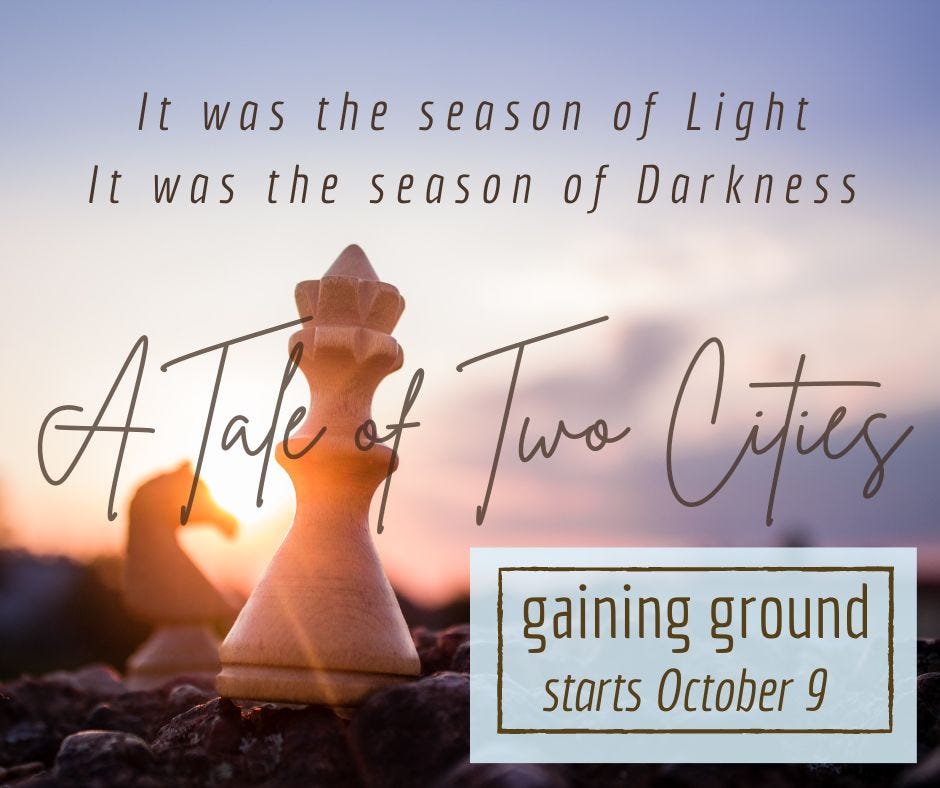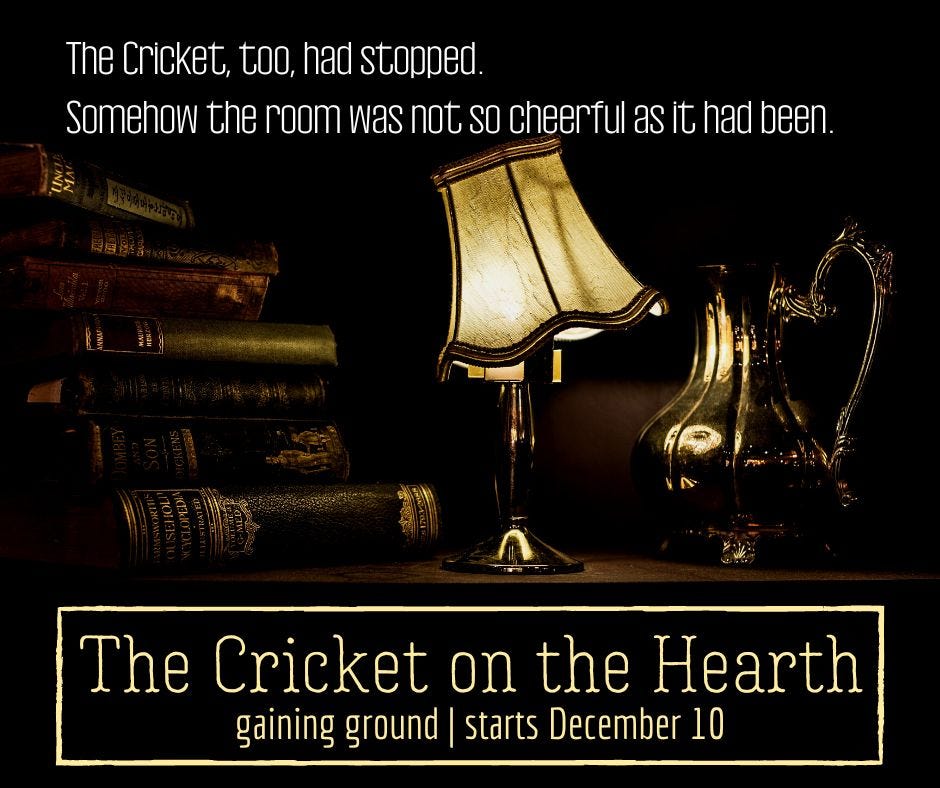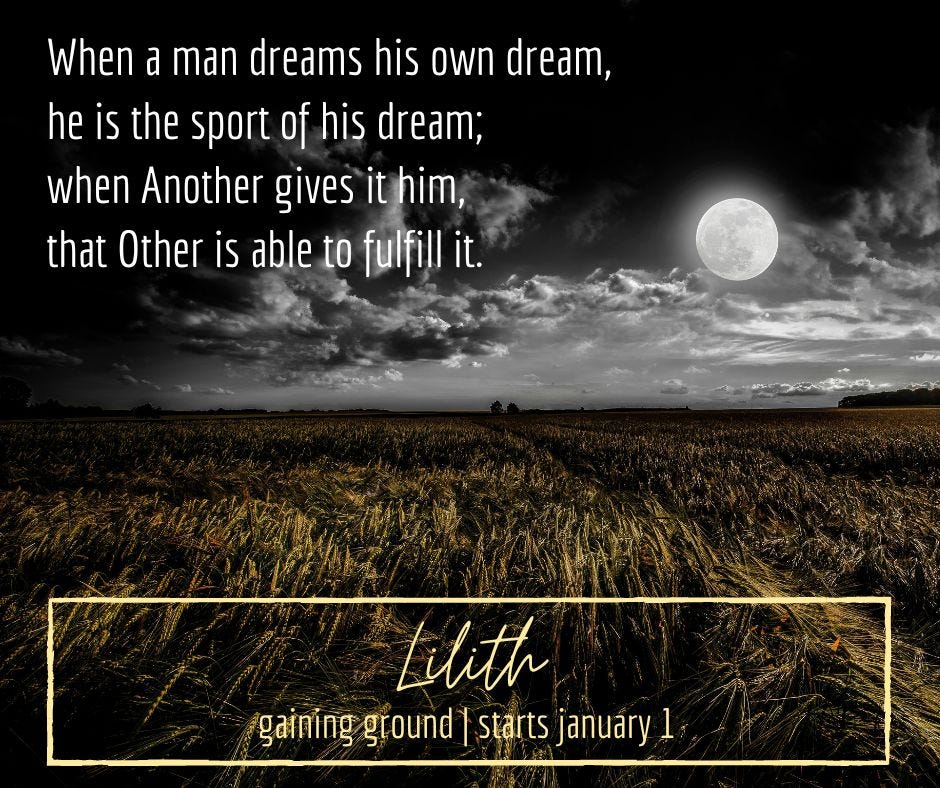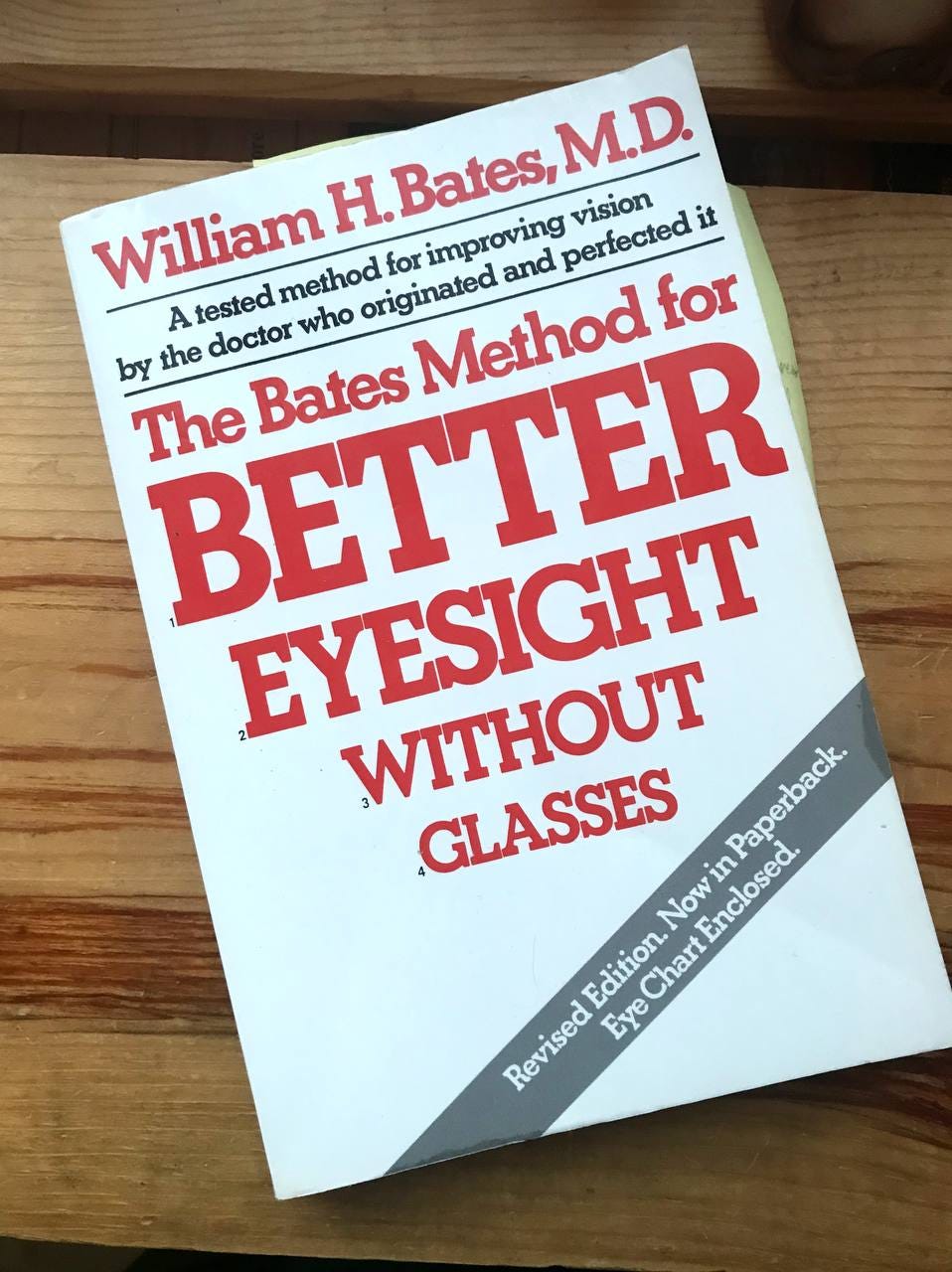Um, it seems like we’ve read more than eight books this year.
But no, I checked, and that’s right, even though the photo below only shows seven because I’ve searched all over and can’t find our copy of The Outsiders anywhere. And those eight books are no small thing when you realize we had to travel from Middle Earth to Narnia to London and Paris and the Midwest and Prince Edward Island to attain them all. It’s been a beautiful and exhausting journey.
But even if you only read one or two of the books, or you’re just joining us, or you read your own list of books, or you’re just now making reading a part of your lifestyle again (or for the first time), there is great power in small first steps. Simple, small starts are easy to build on.
Every page and book matters, even if it’s one you didn’t understand or agree with or you quit it in disgust, because it drew thoughts and emotions out of you. It brought cloudy concepts to the surface and revealed your clean lines of belief. And even if you don’t feel like you can articulate those clean lines very well yet, recognizing them in the first place is a good, healthy, powerful start. We build from there. The next book will add more lines, and the next will add tints of color, and we find ourselves growing deep and wide as we meet concepts and situations and worlds we never knew existed before.
As long as we’re not turning pages for the sake of turning them (which is no good at all unless you’re fond of paper cuts), something sticks and impresses itself on us when we read — even if it’s just the strong impression that one was the most worthless book ever, in which case you should give yourself permission to stop reading and move on to something better. (Vin and I have a nerdy booklist we endeavor to complete every year that includes at least two slots for “a book that you quit or finished in disgust” so we can at least get credit for trying.)
So here we are at the end of December, getting ready to look at a new year of reading. And if you’ve been with us throughout 2023, here’s a recap of the ground we’ve gained in the last twelve months:
I’ve heard that some of you might be a little “Dickensed out” after the last few months. No fear; for a reprieve we’re starting Lilith by George MacDonald right at the beginning of the new year, and it will blow your mind in the best of ways.
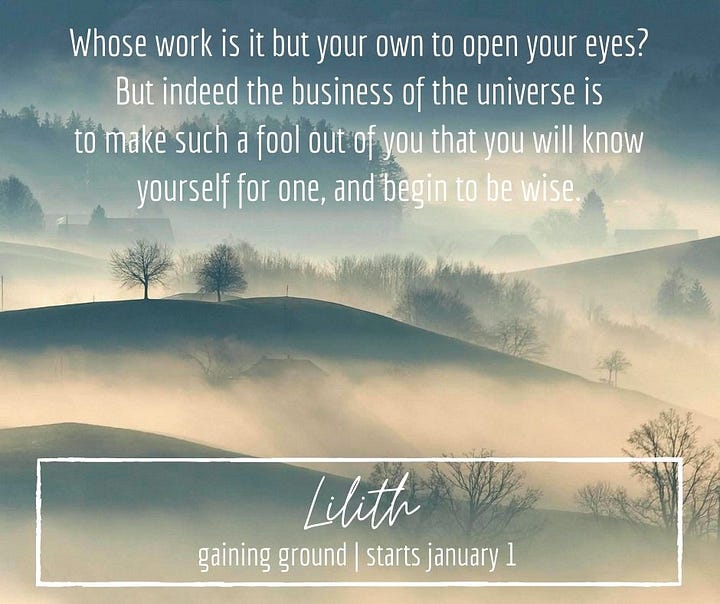
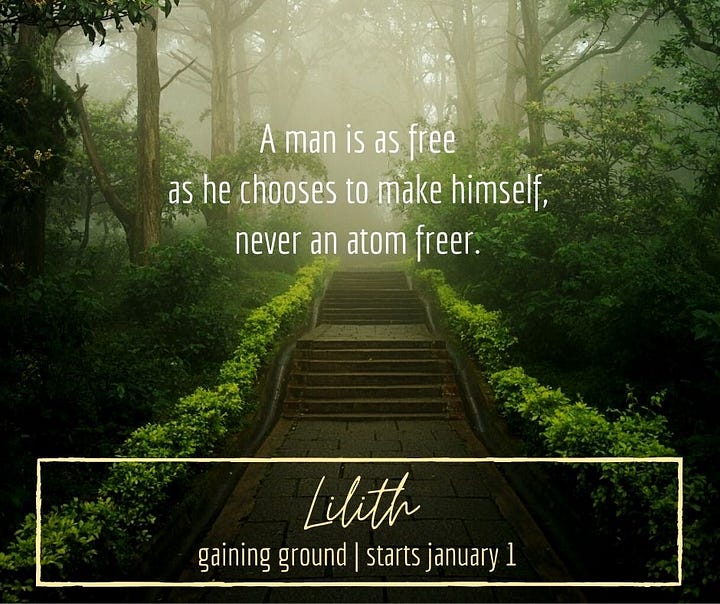
We'll be reading about 36 pages a week for 7 weeks. If you need a copy, Thriftbooks has used and new copies here, Librivox has it in free audio here, and Gutenberg has it online for free here. Want to really delve into some self-awareness? This book will bring a lot of revelation, and it’s a great one to write about and journal through. If you’d like writing coaching to go with it, just click the blue button to register for that (more info here).
After that, in late February we’ll be starting The Scarlet Pimpernel by Emma Orczy. And sometime before we finish that up, we’ll vote for the next round of books.
Meanwhile, here are a couple of non-fiction books that I finished this month:
Dorothy and Jack by Gina Dalfonzo
As you can see from the cover, Dorothy and Jack by Gina Dalfonzo is about the friendship of Dorothy Sayers and C.S. Lewis. It’s a light biography, revealing a lot about both authors that I didn’t know, and a little that I didn’t want to know.
That’s my official statement. But when I was still in the middle of the book, this is what I told some friends:
I’m currently reading a book about the friendship of Dorothy Sayers and C.S. Lewis, which is delightful in spite of the author’s tendency to overuse exclamation marks! All the time! I mean, I’d be more enthusiastic about what she was saying if she didn’t constantly impose enthusiasm upon me! Good grief!
Seriously though, if any of you ever catch me doing that, please reach out through the internet and shake me a little.
Other than the abuse of exclamation marks, it was a great read and totally worth checking out if you like either Lewis or Sayers.
Here’s another one I just finished and have answered a lot of questions about lately:
The Bates Method for Better Eyesight Without Glasses by William Bates, M.D.
Short opinion: Good info. Super repetitive. No eye chart was actually included (and no, this wasn’t a used copy).
Slightly longer opinion: This isn’t a medically verbose book. It’s not boring (except for the repetition, which is skimmable) and there are a lot of real life examples that illustrate the concepts and exercises the author uses. It is old — I think the original book was written about 100 years ago — but it doesn’t read like it. If you’re interested in natural health and healing, this book will probably confirm a lot of things you already know intuitively and expand upon them.
I’d love to hear about what you’re reading, what you recommend, and where you’re gaining ground, too. Feel free to post it in the comments, and I hope to see you in our Telegram group next week as we start Lilith.
Happy reading,
Shannon


